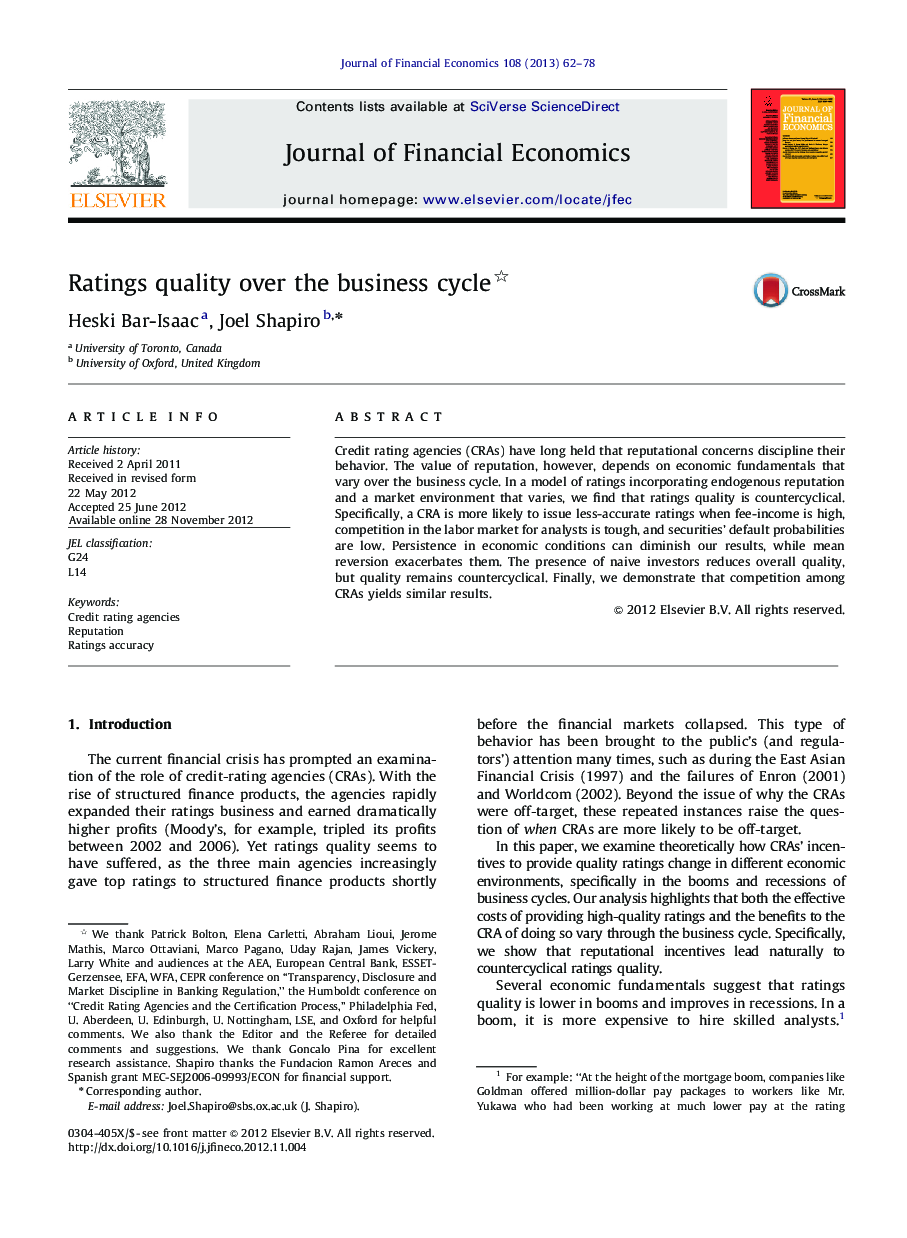| Article ID | Journal | Published Year | Pages | File Type |
|---|---|---|---|---|
| 959501 | Journal of Financial Economics | 2013 | 17 Pages |
Credit rating agencies (CRAs) have long held that reputational concerns discipline their behavior. The value of reputation, however, depends on economic fundamentals that vary over the business cycle. In a model of ratings incorporating endogenous reputation and a market environment that varies, we find that ratings quality is countercyclical. Specifically, a CRA is more likely to issue less-accurate ratings when fee-income is high, competition in the labor market for analysts is tough, and securities' default probabilities are low. Persistence in economic conditions can diminish our results, while mean reversion exacerbates them. The presence of naive investors reduces overall quality, but quality remains countercyclical. Finally, we demonstrate that competition among CRAs yields similar results.
